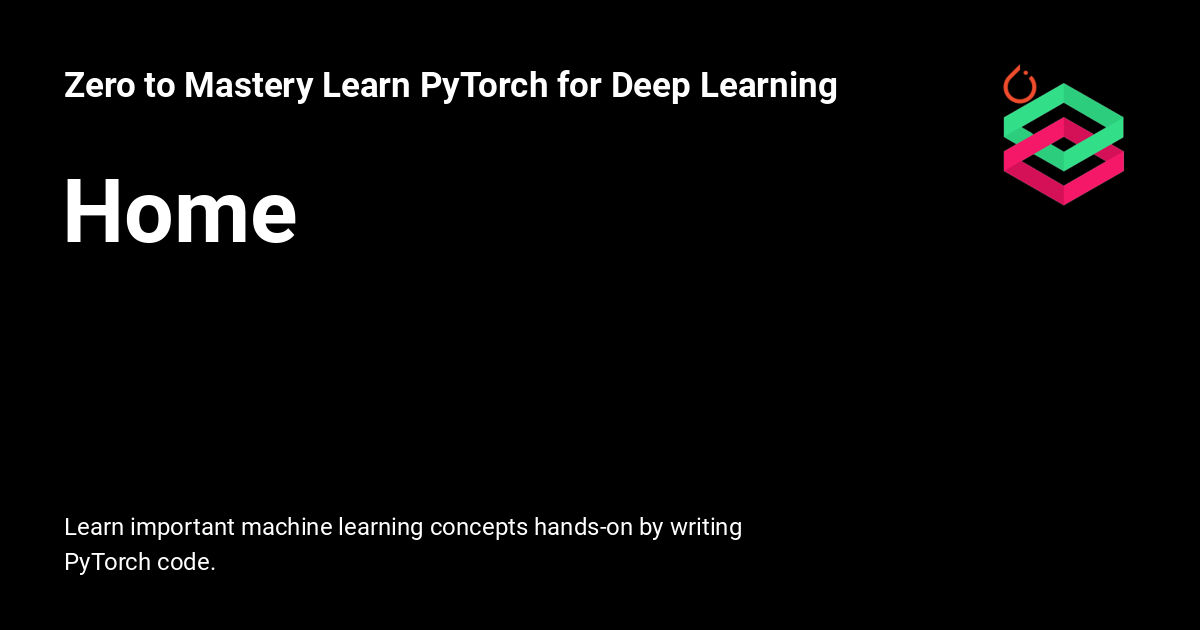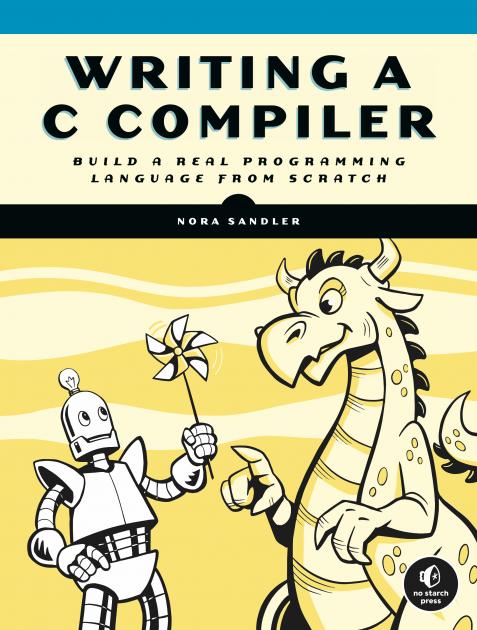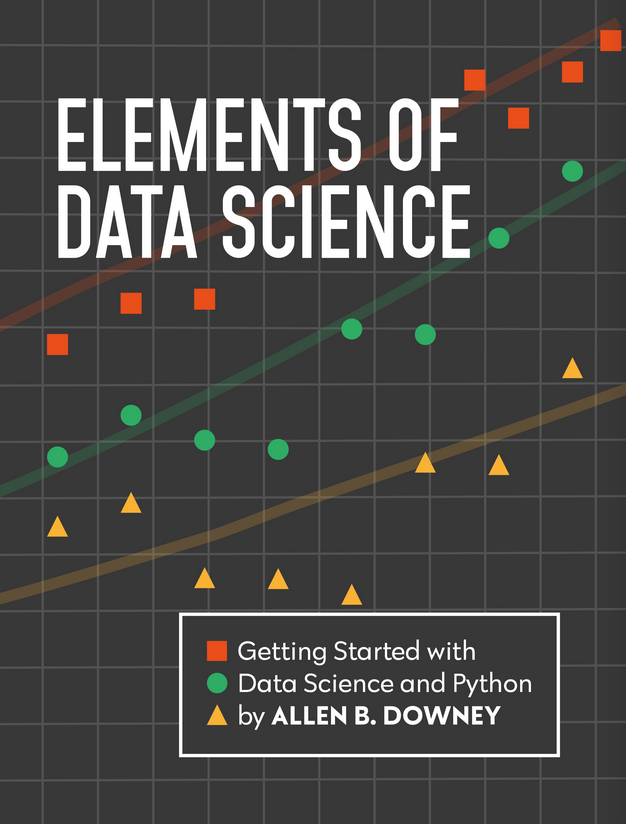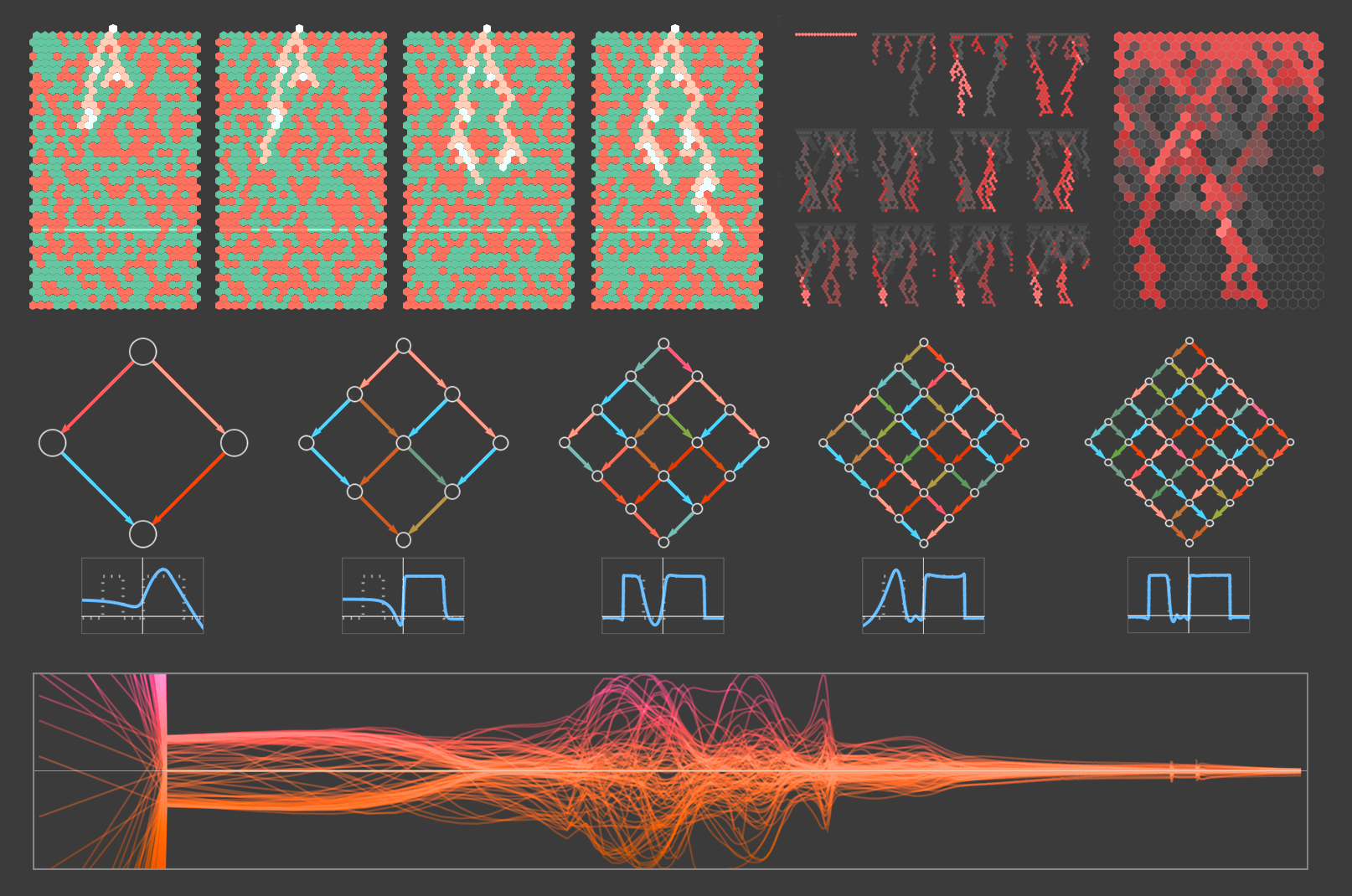 ericjmorey
9h ago
•
100%
ericjmorey
9h ago
•
100%
I'm not sure I understand the trade offs you're choosing by deploying this way. The benefit of simplicity an speed of deployment seems clear from your write-up. But are those the most important considerations? Why or why not?
 ericjmorey
2d ago
•
100%
ericjmorey
2d ago
•
100%
How are you liking bearblog.dev?
 ericjmorey
2d ago
•
100%
ericjmorey
2d ago
•
100%
This is a teaser for the promised future posts. Don't ghost us.
 ericjmorey
2d ago
•
100%
ericjmorey
2d ago
•
100%
Poorer quality, produced faster.
 ericjmorey
3d ago
•
100%
ericjmorey
3d ago
•
100%
Nice. It's good to see Fossify thrive.
 ericjmorey
4d ago
•
100%
ericjmorey
4d ago
•
100%
You reading something that wasn't written isn't on me.
 ericjmorey
4d ago
•
100%
ericjmorey
4d ago
•
100%
This looks clever in the best way
 ericjmorey
4d ago
•
50%
ericjmorey
4d ago
•
50%
Hence why I provided information for people using Android phones.
 ericjmorey
6d ago
•
100%
ericjmorey
6d ago
•
100%
Working for me now. 2 hours after your post.
 ericjmorey
1w ago
•
100%
ericjmorey
1w ago
•
100%
I don't think it's a lie to say that the majority of the customer base cares more about convenience and novelty than security of their vacuum.
 ericjmorey
1w ago
•
100%
ericjmorey
1w ago
•
100%
Good point. But they market the ability to interact with the vacuum machine when you're away from the house and it seems that this feature gains them more customers than they lose.
 ericjmorey
1w ago
•
100%
ericjmorey
1w ago
•
100%
Yup
 ericjmorey
1w ago
•
90%
ericjmorey
1w ago
•
90%
It needs to communicate to the phone app somehow and anything else is going to be too big a hurdle for a huge portion of the customer base.
 ericjmorey
1w ago
•
96%
ericjmorey
1w ago
•
96%
Everyone can save time and just read your synopsis. These are billionaires backed by huge investment funds fighting over service fees.
 ericjmorey
1w ago
•
100%
ericjmorey
1w ago
•
100%
Probably want to add experimental in there too.
 ericjmorey
1w ago
•
100%
ericjmorey
1w ago
•
100%
I get the sense that you might appreciate golang.
 ericjmorey
2w ago
•
100%
ericjmorey
2w ago
•
100%
Thank you for working on it. I have confirmed it's working now. Sorry I haven't visited p.d this weekend until now or I would have responded sooner.
 ericjmorey
2w ago
•
0%
ericjmorey
2w ago
•
0%
We're all not existing together!
Hopefully they can figure out a fix soon.
 ericjmorey
3w ago
•
90%
ericjmorey
3w ago
•
90%
It seems there's room for both
 ericjmorey
3w ago
•
100%
ericjmorey
3w ago
•
100%
FYI the person with enough money to donate $300,000 to a programming language foundation is the founder of HashiCorp.
29 August 2024 Jonathan Carter writes: > As it stands now, bcachefs-tools is impossible to maintain in Debian stable. While my primary concerns when packaging, are for Debian unstable and the next stable release, I also keep in mind people who have to support these packages long after I stopped caring about them (like Freexian who does LTS support for Debian or Canonical who has long-term Ubuntu support, and probably other organisations that I’ve never even heard of yet). And of course, if bcachfs-tools don’t have any usable stable releases, it doesn’t have any LTS releases either, so anyone who needs to support bcachefs-tools long-term has to carry the support burden on their own, and if they bundle it’s dependencies, then those as well. > > I don’t have any solution for fixing this. I suppose if I were upstream I might look into the possibility of at least supporting a larger range of recent dependencies (usually easy enough if you don’t hop onto the newest features right away) so that distributions with stable releases only need to concern themselves with providing some minimum recent versions, but even if that could work, the upstream author is 100% against any solution other than vendoring all its dependencies with the utility and insisting that it must only be built using these bundled dependencies. I’ve made 6 uploads for this package so far this year, but still I constantly get complaints that it’s out of date and that it’s ancient. If a piece of software is considered so old that it’s useless by the time it’s been published for two or three months, then there’s no way it can survive even a usual stable release cycle, nevermind any kind of long-term support. > > With this in mind ... I decided to remove bcachefs-tools from Debian completely. Although after discussing this with another DD, I was convinced to orphan it instead, which I have now done. I made an upload to experimental so that it’s still available if someone wants to work on it (without having to go through NEW again), it’s been removed from unstable so that it doesn’t migrate to testing, and the ancient (especially by bcachefs-tools standards) versions that are in stable and oldstable will be removed too, since they are very likely to cause damage with any recent kernel versions that support bcachefs. It seems that this is one more iteration of the conflict between Debian's focus on stability vs the desire to use the latest products, tool, and features. I'm happy to see that instead of removing bcachefs-tools completely, that the package has been orphaned so it will be easier for someone to pick up maintenance of the package. I'm excited to see bcachefs get closer to becoming a mainstream filesystem, but it will take time to get there as issues like these will have to be worked through for any LTS/stability focused distribution.
 www.learnpytorch.io
www.learnpytorch.io
> ### About this course > **Who is this course for?** > > You: Are a beginner in the field of machine learning or deep learning or AI and would like to learn PyTorch. > > This course: Teaches you PyTorch and many machine learning, deep learning and AI concepts in a hands-on, code-first way. > > If you already have 1-year+ experience in machine learning, this course may help but it is specifically designed to be beginner-friendly. > > **What are the prerequisites?** > - 3-6 months coding Python. > - At least one beginner machine learning course (however this might be able to be skipped, resources are linked for many different topics). > - Experience using Jupyter Notebooks or Google Colab (though you can pick this up as we go along). > - A willingness to learn (most important).
### Video Description > Many programming languages have standard libraries. What about JavaScript? 🤔️ > > Deno's goal is to simplify programming, and part of that is to provide the JavaScript community with a carefully audited standard library (that works in Deno and Node) that offers utility functions for data manipulation, web-related logic, and more. We created the Deno Standard Library in 2021, and four years, 151 releases, and over 4k commits later, we're thrilled to finally announce that it's 30 modules are finally stabilized at v1. > > Learn more about the [Deno Standard Library]() > > Read about our [stabilization process]() for the library
Andres Vourakis writes: > ### Data Scientist Handbook 2024 > > Curated resources (Free & Paid) to help data scientists learn, grow, and break into the field of data science. > Even though there are hundreds of resources out there (too many to keep track of), I will try to limit them to a maximum of 5 per category to ensure you get the most valuable and relevant resources out there, plus, the whole point of this repository is to help you avoid getting overwhelmed by too many choices. This way you can focus less time researching and more time learning. > ### FAQs > > - **How is curation done?** Curation is based on thorough research, recommendations from people I trust, and my years of experience as a Data Scientist. > - **Are all resources free?** Most resources here will be free, but I will also include paid alternatives if they are truly valuable to your career development. All paid resources include the symbol 💲. > - **How often is the repository updated?** I plan to come back here as often as possible to ensure all resources are still available and relevant and also to add new ones.
> There is more to Hindley-Milner type inference than the Algorithm W. In 1988, Didier Rémy was looking to speed up the type inference in Caml and discovered an elegant method of type generalization. Not only it is fast, avoiding scanning the type environment. It smoothly extends to catching of locally-declared types about to escape, to type-checking of universals and existentials, and even to MLF. > > Alas, both the algorithm and its implementation in the OCaml type checker are little known and little documented. This page is to explain and popularize Rémy's algorithm, and to decipher a part of the OCaml type checker. The page also aims to preserve the history of Rémy's algorithm. Read [How OCaml type checker works](https://okmij.org/ftp/ML/generalization.html)
 nostarch.com
nostarch.com
### Book Description Writing a C Compiler will take you step by step through the process of building your own compiler for a significant subset of C—no prior experience with compiler construction or assembly code needed. Once you’ve built a working compiler for the simplest C program, you’ll add new features chapter by chapter. The algorithms in the book are all in pseudocode, so you can implement your compiler in whatever language you like. Along the way, you’ll explore key concepts like: - Lexing and parsing: Learn how to write a lexer and recursive descent parser that transform C code into an abstract syntax tree. - Program analysis: Discover how to analyze a program to understand its behavior and detect errors. - Code generation: Learn how to translate C language constructs like arithmetic operations, function calls, and control-flow statements into x64 assembly code. - Optimization techniques: Improve performance with methods like constant folding, dead store elimination, and register allocation. Compilers aren’t terrifying beasts—and with help from this hands-on, accessible guide, you might even turn them into your friends for life. ### Author Bio Nora Sandler is a software engineer based in Seattle. She holds a BS in computer science from the University of Chicago, where she researched the implementation of parallel programming languages. More recently, she’s worked on domain-specific languages at an endpoint security company. You can find her blog on pranks, compilers, and other computer science topics at https://norasandler.com.
[Table of Arena Crates](https://donsz.nl/blog/arenas/) For a technical discussion of using arenas for memory allocation with an example implementation, see gingerBill's [Memory Allocation Strategies - Part 2: Linear/Arena Allocators](https://www.gingerbill.org/article/2019/02/08/memory-allocation-strategies-002/)
EventHelix writes: > This article will investigate how Rust handles dynamic dispatch using trait objects and vtables. We will also explore how the Rust compiler can sometimes optimize tail calls in the context of dynamic dispatch. Finally, we will examine how the vtable facilitates freeing memory when using trait objects wrapped in a `Box`.
> The blog post is the author's impressions of Gleam after [it released version 1.4.0](https://gleam.run/news/supercharged-labels/). [Gleam](https://gleam.run/) is an upcoming language that is getting a lot of highly-ranked articles. > > It runs on the [Erlang virtual machine (BEAM)](https://en.wikipedia.org/wiki/BEAM_(Erlang_virtual_machine)), making it great for distributed programs and a competitor to [Elixir](https://elixir-lang.org/) and [Erlang (the language)](https://www.erlang.org/). It also compiles to [JavaScript](https://www.javascript.com/), making it a competitor to [TypeScript](https://www.typescriptlang.org/). > > But unlike Elixir, Erlang, and TypeScript, it's *strongly* typed (not just gradually typed). It has "functional" concepts like algebraic data types, immutable values, and first-class functions. The syntax is modeled after [Rust](https://www.rust-lang.org/) and its [tutorial](https://tour.gleam.run/) is modeled after [Go's](https://go.dev/tour/). Lastly, it has a very large community.
 www.allendowney.com
www.allendowney.com
July 17, 2024 [Allen B. Downey](https://www.allendowney.com/blog/2024/07/17/elements-of-data-science/) writes: > Elements of Data Science is an introduction to data science for people with no programming experience. My goal is to present a small, powerful subset of Python that allows you to do real work with data as quickly as possible. > > Part 1 includes six chapters that introduce basic Python with a focus on working with data. > > Part 2 presents exploratory data analysis using Pandas and empiricaldist — it includes a revised and updated version of the material from my popular DataCamp course, “Exploratory Data Analysis in Python.” > > Part 3 takes a computational approach to statistical inference, introducing resampling method, bootstrapping, and randomization tests. > > Part 4 is the first of two case studies. It uses data from the General Social Survey to explore changes in political beliefs and attitudes in the U.S. in the last 50 years. The data points on the cover are from one of the graphs in this section. > > Part 5 is the second case study, which introduces classification algorithms and the metrics used to evaluate them — and discusses the challenges of algorithmic decision-making in the context of criminal justice. > > This project started in 2019, when I collaborated with a group at Harvard to create a data science class for people with no programming experience. We discussed some of the design decisions that went into the course and the book in this article. Read [Elements of Data Science](https://allendowney.github.io/ElementsOfDataScience/) in the form of Jupyter notebooks.
> [Dmitry Grinberg](https://dmitry.gr/?r=01.Myself) writes: > > > go replan all your STM32H7 projects with RP2350, save money, headaches, and time. As a bonus, you’ll get an extra core to play with too! "But," you might say, "STMicro chips come with internal flash, while RP2350 still requires an external SPI chip to store the flash". Hold on to your hats... there are now RP2350 variants with built-in flash! They are called RP2354A nd RP2354B and they include 2MBytes of flash in-package. The pinouts are the same as the RP2350A/B, for a bonus! Why two pinouts? Because the "more GPIOs" dream also came true! There is now a variant with more GPIOS, available in an 80-pin package. That’s right! It is epic! > > Read [Why you should fall in love with the RP2350](https://dmitry.gr/?r=06.%20Thoughts&proj=11.%20RP2350)
[Dmitry Grinberg](https://dmitry.gr/?r=01.Myself) writes: > go replan all your STM32H7 projects with RP2350, save money, headaches, and time. As a bonus, you’ll get an extra core to play with too! "But," you might say, "STMicro chips come with internal flash, while RP2350 still requires an external SPI chip to store the flash". Hold on to your hats... there are now RP2350 variants with built-in flash! They are called RP2354A nd RP2354B and they include 2MBytes of flash in-package. The pinouts are the same as the RP2350A/B, for a bonus! Why two pinouts? Because the "more GPIOs" dream also came true! There is now a variant with more GPIOS, available in an 80-pin package. That’s right! It is epic! Read [Why you should fall in love with the RP2350](https://dmitry.gr/?r=06.%20Thoughts&proj=11.%20RP2350)
As the first alpha version of COSMIC Epoch 1, it is incomplete. You’ll most certainly find bugs. Testing and bug reports are welcome and appreciated. New feature requests will be considered for Epoch 2, COSMIC’s second release. [COSMIC Epoch 1 (alpha 1) on the Pop!_OS 24.04 LTS alpha ISO files are available ](https://system76.com/cosmic) Try COSMIC on other Linux distributions Fedora - See instructions NixOS - See instructions Arch - See instructions openSUSE - Coming soon Serpent OS - See instructions Redox OS - includes some COSMIC Components - See Progress https://system76.com/cosmic
Book Preface: > Welcome to Apache Iceberg: The Definitive Guide! We’re delighted you have embarked on this learning journey with us. In this preface, we provide an overview of this book, why we wrote it, and how you can make the most of it. > > ### About This Book > > In these pages, you’ll learn what Apache Iceberg is, why it exists, how it works, and how to harness its power. Designed for data engineers, architects, scientists, and analysts working with large datasets across various use cases from BI dashboards to AI/ML, this book explores the core concepts, inner workings, and practical applications of Apache Iceberg. By the time you reach the end, you will have grasped the essentials and possess the practical knowledge to implement Apache Iceberg effectively in your data projects. Whether you are a newcomer or an experienced practitioner, Apache Iceberg: The Definitive Guide will be your trusted companion on this enlightening journey into Apache Iceberg. > > ### Why We Wrote This Book > > As we observed the rapid growth and adoption of the Apache Iceberg ecosystem, it became evident that a growing knowledge gap needed to be addressed. Initially, we began by sharing insights through a series of blog posts on the Dremio platform to provide valuable information to the burgeoning Iceberg community. However, it soon became clear that a comprehensive and centralized resource was essential to meet the increasing demand for a definitive Iceberg reference. This realization was the driving force behind the creation of Apache Iceberg: The Definitive Guide. Our goal is to provide readers with a single authoritative source that bridges the knowledge gap and empowers individuals and organizations to make the most of Apache Iceberg’s capabilities in their data-related endeavors. > > ### What You Will Find Inside > > In the following chapters, you will learn what Apache Iceberg is and how it works, how you can take advantage of the format with a variety of tools, and best practices to manage the quality and governance of the data in Apache Iceberg tables. Here is a summary of each chapter’s content: > > - **Chapter 1**, “Introduction to Apache Iceberg” > Exploration of the historical context of data lakehouses and the essential concepts underlying Apache Iceberg. > - **Chapter 2**, “The Architecture of Apache Iceberg” > Deep dive into the intricate design of Apache Iceberg, examining how its various components function together. > - **Chapter 3**, “Lifecycle of Write and Read Queries” > Examination of the step-by-step process involved in Apache Iceberg transactions, highlighting updates, reads, and time-travel queries. > - **Chapter 4**, “Optimizing the Performance of Iceberg Tables” > Discussions on maintaining optimized performance in Apache Iceberg tables through techniques such as compaction and sorting. > - **Chapter 5**, “Iceberg Catalogs” > In-depth explanation of the role of Apache Iceberg catalogs, exploring the different catalog options available. > - **Chapter 6**, “Apache Spark” > Practical sessions using Apache Spark to manage and interact with Apache Iceberg tables. > - **Chapter 7**, “Dremio’s SQL Query Engine” > Exploration of the Dremio lakehouse platform, focusing on DDL, DML, and table optimization for Apache Iceberg tables. > - **Chapter 8**, “AWS Glue” > Demonstration of the use of AWS Glue Catalog and AWS Glue Studio for working with Apache Iceberg tables. > - **Chapter 9**, “Apache Flink” > Practical exercises in using Apache Flink for streaming data processing with Apache Iceberg tables. > - **Chapter 10**, “Apache Iceberg in Production” > Insights into managing data quality in production, using metadata tables for table health monitoring and employing table and catalog versioning for various operational needs. > - **Chapter 11**, “Streaming with Apache Iceberg” > Use of tools such as Apache Spark, Flink, and AWS Glue for streaming data processing into Iceberg tables. > - **Chapter 12**, “Governance and Security” > Exploration of the application of governance and security at various levels in Apache Iceberg tables, such as storage, semantic layers, and catalogs. > - **Chapter 13**, “Migrating to Apache Iceberg” > Guidelines on transforming existing datasets from different file types and databases into Apache Iceberg tables. > - **Chapter 14**, “Real-World Use Cases of Apache Iceberg” > A look at real-world applications of Apache Iceberg, including business intelligence dashboards and implementing change data capture > > [Direct link to PDF](https://www.dremio.com/wp-content/uploads/2023/02/apache-iceberg-TDG_ER1.pdf) > > Dremio bills itself as a "Unified Analytics Platform for a Self-Service Lakehouse". The authors of the book work for Dremio and may have ownership interest in Dremio.
What issues or frustrations have you encountered in trying to use and set up Neovim in Windows 11? I'm currently writing up my experience with installing, setting up, and using Neovim in Windows and would like to hear from others that have tried the same. What was annoying, difficult, or impossible in your experience?
 corrode.dev
corrode.dev
> Many devs dream of one day writing their own operating system. Ideally in their favorite language: Rust. For many of us, this dream remains just that: a dream. > > Jeremy Soller from System76, however, didn't just contribute kernel code for Pop!_OS, but also started his own operating system, RedoxOS, which is completely written in Rust. One might get the impression that he likes to tinker with low-level code! > > In this episode of Rust in Production, Jeremy talks about his journey. From getting hired as a kernel developer at Denver-based company System76 after looking at the job ad for 1 month and finally applying, to being the maintainer of not one but two operating systems, additional system tools, and the Rust-based Cosmic desktop. We'll talk about why it's hard to write correct C code even for exceptional developers like Jeremy and why Rust is so great for refactoring and sharing code across different levels of abstraction. Listen to [Rust in Production Podcast S02 E07](https://corrode.dev/podcast/s02e07-system76/)
 corrode.dev
corrode.dev
> Many devs dream of one day writing their own operating system. Ideally in their favorite language: Rust. For many of us, this dream remains just that: a dream. > > Jeremy Soller from System76, however, didn't just contribute kernel code for Pop!_OS, but also started his own operating system, RedoxOS, which is completely written in Rust. One might get the impression that he likes to tinker with low-level code! > > In this episode of Rust in Production, Jeremy talks about his journey. From getting hired as a kernel developer at Denver-based company System76 after looking at the job ad for 1 month and finally applying, to being the maintainer of not one but two operating systems, additional system tools, and the Rust-based Cosmic desktop. We'll talk about why it's hard to write correct C code even for exceptional developers like Jeremy and why Rust is so great for refactoring and sharing code across different levels of abstraction. Listen to [Rust in Production Podcast S02 E07](https://corrode.dev/podcast/s02e07-system76/)
 corrode.dev
corrode.dev
> > Many devs dream of one day writing their own operating system. Ideally in their favorite language: Rust. For many of us, this dream remains just that: a dream. > > > > Jeremy Soller from System76, however, didn't just contribute kernel code for Pop!_OS, but also started his own operating system, RedoxOS, which is completely written in Rust. One might get the impression that he likes to tinker with low-level code! > > > > In this episode of Rust in Production, Jeremy talks about his journey. From getting hired as a kernel developer at Denver-based company System76 after looking at the job ad for 1 month and finally applying, to being the maintainer of not one but two operating systems, additional system tools, and the Rust-based Cosmic desktop. We'll talk about why it's hard to write correct C code even for exceptional developers like Jeremy and why Rust is so great for refactoring and sharing code across different levels of abstraction. Listen to [Rust in Production Podcast S02 E07](https://corrode.dev/podcast/s02e07-system76/)
